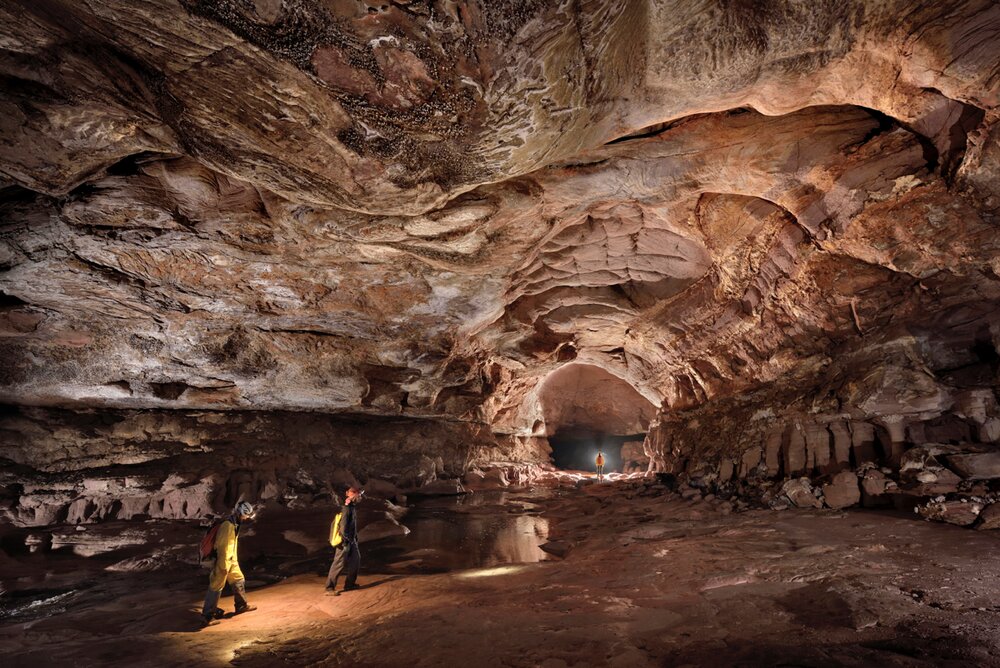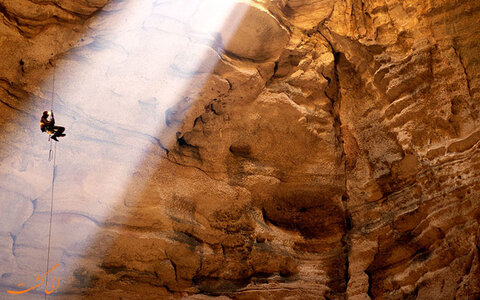Iran (IMNA) - Caves always evoke a nostalgic concept for humans. From the first paintings of humans on their walls to be the first human house. Even today, in the age of technology, caves are the mirror of natural history.
For several years, in Iran, September 24 has been celebrated as "National Clean Cave Day", showing the importance of the ecosystem and the need to care for these natural reserves.
Caves are important in several different dimensions. From an ecological point of view, they have a completely unique ecosystem and are host to creatures that have adapted to cave conditions for millions of years, and changes will cause serious damage to these creatures, Mohammad Medadi, head of National Museum of Natural History and Genetic Resources said.
Insects, crustaceans, and even mammals such as bats are some of the species living in caves. These organisms interact with other ecosystems not only inside the cave but also outside it, and their exchange with the outside environment is of great ecological importance, he added.
"One of these species is the pollination of plants by bats. Also, bats, due to their place in the food chain, help to regulate the insect population," Medadi said, adding, on the other hand, many mammals use caves as their sanctuary and resting place, which also shows the high ecological importance of caves.

Most of the caves in the world, especially in Iran, are formed in karst environments. The karst bed is closely related to groundwater resources and, of course, the way we deal with caves can lead to the protection of groundwater resources or, conversely, lead to pollution and damage to these resources, he highlighted.
Referring to the special role of caves in tourism, he said that another thing that shows the high importance of caves is the issue of tourism. Cave tourism is defined in three levels. The first case is the caves that are generally open to tourists. These caves are called “Show Cave”. Some 12 caves in our country fall into this category.
“The second case is the caves in which tourism is done in the form of tours. Unfortunately, in recent years, these tours have been operating without complying with the established rules and caused damages to the cave ecosystem.
Also, caving and cave hiking is the third most significant case in relation to cave tourism, which exists in the form of sports and is done through specific disciplines.
The use of the word tourist in relation to caves and the environment, in general, is incorrect and the term "ecotourism" should be used, which describes responsible tourism in nature and emphasizes the promotion of the culture of tourism.
Visitors must be educated about the importance and vulnerability of caves in order to avoid their actions and behavior inside caves causing permanent and irreparable damage,” he explained.
The outbreak of coronavirus allowed the entire ecosystem to breathe. Despite the extensive damage that the virus inflicted on human mental and physical health, it brought environmental benefits.
Caves and karst environments are of great importance to international organizations and country officials, and special attention is paid to them in the world. The International Show Caves Association has also designated 2021 as the International Year of Caves and Karst to further highlight the importance of caves.


Your Comment